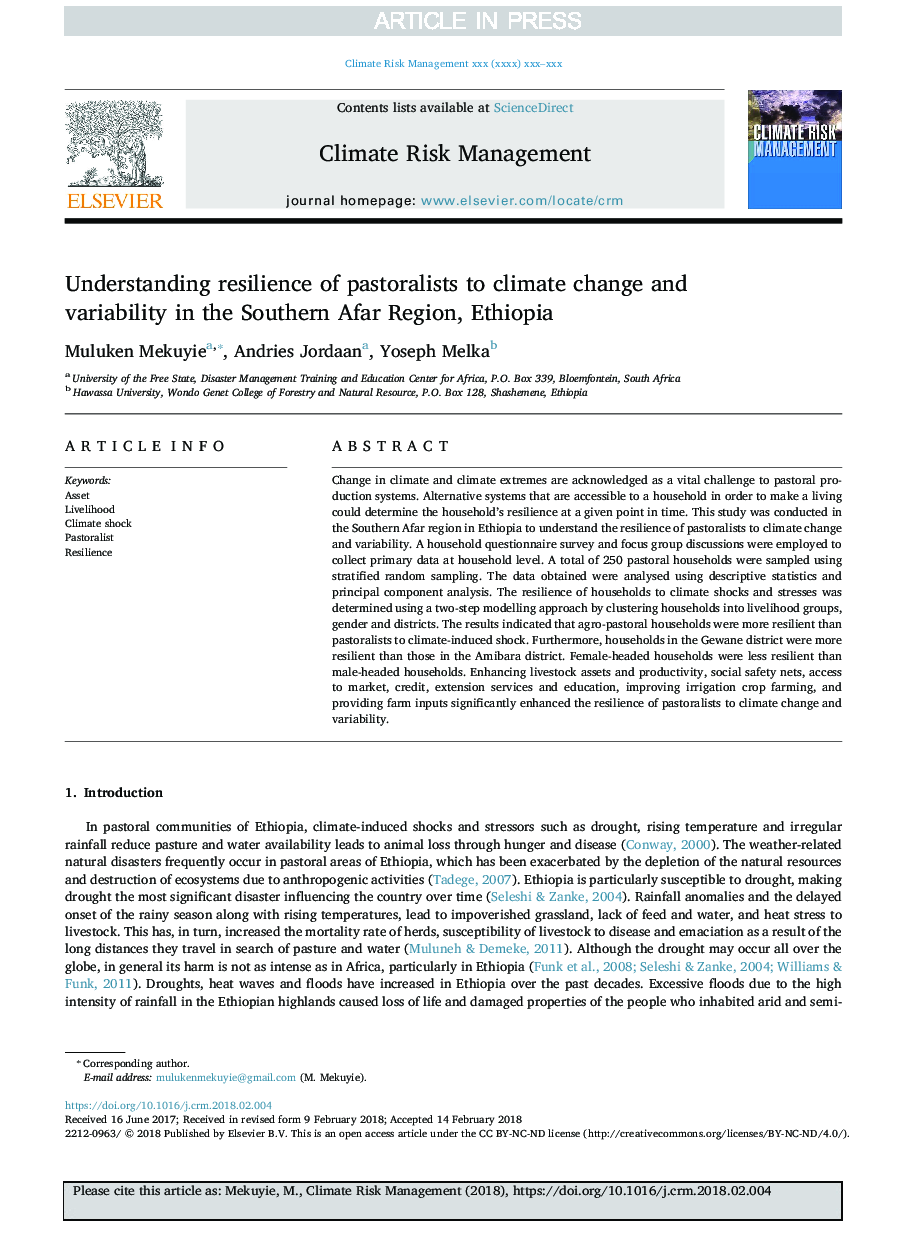| Article ID | Journal | Published Year | Pages | File Type |
|---|---|---|---|---|
| 7462066 | Climate Risk Management | 2018 | 14 Pages |
Abstract
Change in climate and climate extremes are acknowledged as a vital challenge to pastoral production systems. Alternative systems that are accessible to a household in order to make a living could determine the household's resilience at a given point in time. This study was conducted in the Southern Afar region in Ethiopia to understand the resilience of pastoralists to climate change and variability. A household questionnaire survey and focus group discussions were employed to collect primary data at household level. A total of 250 pastoral households were sampled using stratified random sampling. The data obtained were analysed using descriptive statistics and principal component analysis. The resilience of households to climate shocks and stresses was determined using a two-step modelling approach by clustering households into livelihood groups, gender and districts. The results indicated that agro-pastoral households were more resilient than pastoralists to climate-induced shock. Furthermore, households in the Gewane district were more resilient than those in the Amibara district. Female-headed households were less resilient than male-headed households. Enhancing livestock assets and productivity, social safety nets, access to market, credit, extension services and education, improving irrigation crop farming, and providing farm inputs significantly enhanced the resilience of pastoralists to climate change and variability.
Keywords
Related Topics
Physical Sciences and Engineering
Earth and Planetary Sciences
Atmospheric Science
Authors
Muluken Mekuyie, Andries Jordaan, Yoseph Melka,
